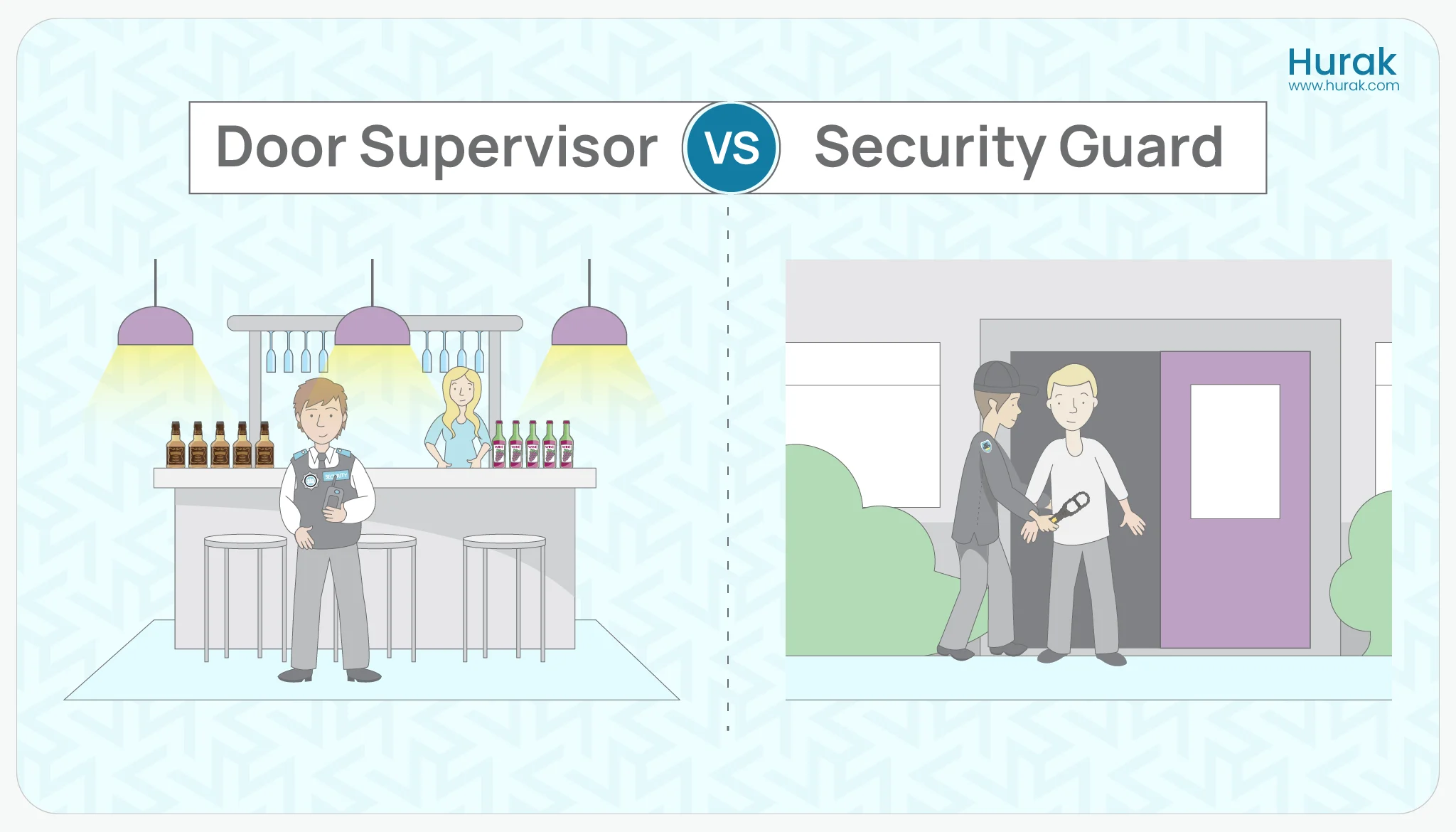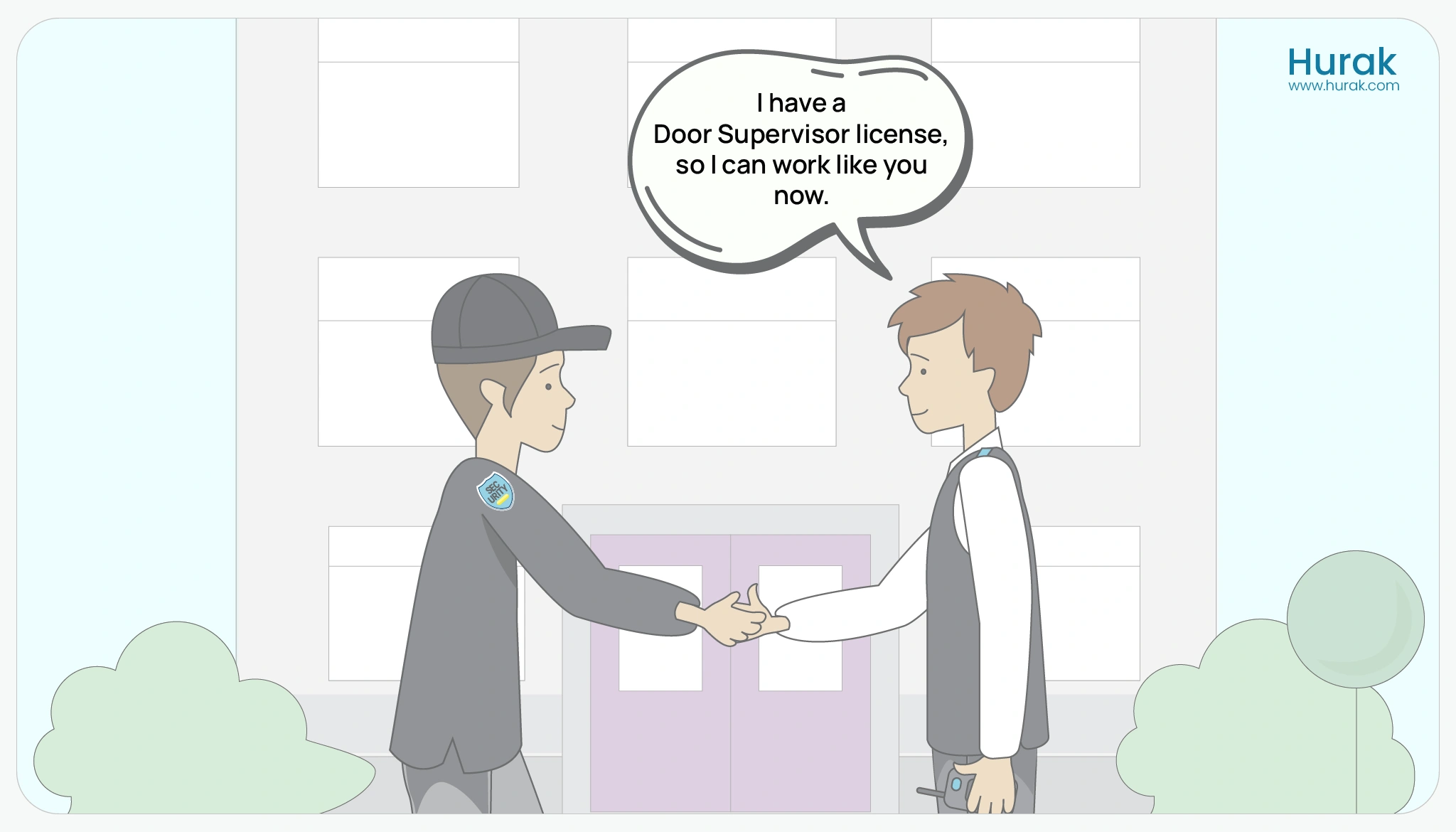When it comes to maintaining safety and order, both door supervisors and security guards play important roles. While their responsibilities often overlap, these professions are distinct in several ways. Understanding the differences can help individuals choose the right career path or hire the appropriate personnel for specific needs.
Roles and Responsibilities
Door Supervisor
A door supervisor is usually employed in licensed premises such as pubs, clubs, and events where alcohol is served. Their primary role is to ensure the safety of patrons, staff, and the premises. This includes managing entry, checking identification, maintaining crowd control, and preventing or addressing conflicts. Door supervisors also enforce licensing laws, such as preventing underage drinking or drug use.
Security Guard
On the other hand, security guards provide a broader range of services. They are employed in various settings, such as retail stores, office buildings, hospitals, and construction sites. Their responsibilities include monitoring CCTV systems, patrolling premises, preventing theft, and responding to emergencies. Unlike door supervisors, they may only sometimes work in environments where alcohol is served.
Training
Door Supervisor Training
Door supervisors require specific training related to managing licensed premises. This includes conflict resolution, physical intervention techniques, drug awareness, and understanding licensing laws. The training also covers the core competencies of a security guard.
Security Guard Training
Security guard training focuses on basic security practices, including patrolling, customer service, and emergency procedures. While the training is less specialised than door supervisors, it teaches guards the skills to ensure general safety and security.
Uniform
Door Supervisor
Door supervisors often wear formal or semi-formal attire, such as suits or branded uniforms, to maintain a professional appearance. Their clothing may also feature high-visibility elements for safety and identification.
Security Guard
Security guards usually wear uniforms designed for functionality and visibility. This may include high-visibility jackets, badges, and other items identifying their role. The uniform often varies depending on the employer and the nature of the venue.

Did you know?
A Door Supervisor is specifically trained to manage licensed premises, such as bars and clubs, often dealing with challenging situations like crowd control and intoxicated individuals. In contrast, Security Guards focus on safeguarding various environments, from corporate offices to retail spaces, ensuring general site safety and preventing unauthorised access. Check our SIA security courses that offer 📅 Flexible schedules | 🎓 Expert Trainers | ✅ SIA Approval!
Venue of Work
Door Supervisor
Door supervisors predominantly work at night and in environments where alcohol consumption is a factor. These venues include nightclubs, bars, and large-scale events.
Security Guard
Security guards work in various environments, including retail outlets, schools, hospitals, and corporate offices. Their work may involve day or night shifts, depending on the location and requirements.

Qualifications and Work Requirements
Door Supervisor
To become a door supervisor, complete an SIA-approved training course and obtain a Door Supervisor licence. They should possess good communication and conflict management skills, physical fitness, and the ability to work under pressure.
Security Guard
Security guards must also complete an SIA-approved training course but can obtain a Security Guard licence, which has fewer requirements than a Door Supervisor licence. Strong observational skills, attention to detail, and a professional demeanour are essential.
Job Opportunities
Door Supervisor
The demand for door supervisors is high in urban areas with a thriving nightlife. Job opportunities are common in cities with licensed premises and events.
Security Guard
Security guards have broader job opportunities, as their roles are required in various industries, including retail, healthcare, construction, and corporate sectors.
Door Supervisor vs Security Guard
Feature | Door Supervisor | Security Guard |
Primary Role | Maintains order and safety at licensed premises (e.g., bars, clubs) | Provides security for various settings, such as offices, malls, or events |
Legal Requirements | Must hold a Door Supervisor license issued by the SIA (UK) | Requires a Security Guard license or equivalent certification |
Work Environment | Primarily works at venues where alcohol is served or large crowds gather | Works in diverse environments, including retail, corporate, and industrial sites |
Conflict Management | Trained to handle intoxicated individuals and de-escalate fights or disturbances | Focuses on general security threats and unauthorised access |
Dress Code | Often wears formal attire or branded uniforms specific to the venue | Usually wears standard security uniforms |
Key Responsibilities | Conducting bag checks, ensuring proper ID verification, and managing entry | Patrolling premises, monitoring CCTV, and responding to alarms |
Interaction with Public | High level of interaction, including managing crowds and handling complaints | Moderate interaction, mostly with employees or visitors |
Physical Training | May require additional physical training for handling aggressive individuals | Basic physical fitness to handle emergencies and long shifts |
Legal Responsibilities
Door Supervisor
Door supervisors have additional legal responsibilities due to their work in licensed premises. They must comply with the Licensing Act 2003, ensuring that establishments comply with the law. They also have the authority to refuse entry and remove individuals from the premises if necessary.
Security Guard
Security guards focus on protecting property and ensuring people’s safety. While they do not enforce licensing laws, they must operate within the boundaries of the law, particularly when detaining individuals or using reasonable force.

Door Supervisor vs Security Guard: Key Differences in SIA Licences
The SIA (Security Industry Authority) issues licences for both roles, but the requirements and permissions differ. A Door Supervisor licence allows individuals to work as both a door supervisor and a security guard, providing greater flexibility. In contrast, a Security Guard licence only permits work in non-licensed premises, limiting job opportunities. Moreover, if you have a Close Protection Licence, the SIA allows you to use your licence to work as a Door Supervisor.
Conclusion
While door supervisors and security guards share common goals of ensuring safety and security, their roles, responsibilities, and work environments are distinct. Door supervisors specialise in managing licensed premises, requiring advanced training and legal knowledge, whereas security guards operate in a broader range of settings. Understanding these differences is important for pursuing a career in the security industry or hiring security personnel for specific needs.




